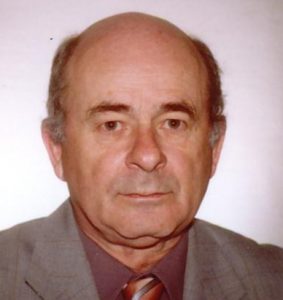Ervin Gömbös
After graduating from university in 1964, he taught mathematics, physics and electronics at a vocational school. Between 1965 and 1967, he worked as a programmer and systems analyst at the Computer Center of the Ministry of Construction (ÉM Számgép).
Between 1967 and 1971, he participated in the development of the integrated statistical information system of the Central Statistical Office (KSH).
Meanwhile, he was the director of a 6-month international EDP (Electronic Data Processing) seminar organized jointly with the International Federation of Information Processing (IFIP) and the Hungarian National Institute of Information Technology.
Between 1971 and 1976, he worked as a computer systems analyst at the United Nations Secretariat in the United Nations Statistical Office (New York) in the areas of international trade, national accounts and world energy supply. He participated in the IT and statistical developments of developing countries and in the preparation of reports on these for the United Nations.
Between 1976 and 1991, he was a deputy head of department at the Central Statistical Office, later serving as chief statistical advisor. He participated in coordinating the harmonization of various government information systems, in drafting the first Hungarian data protection law, and later became secretary of the Operative Committee of the State Population Registration Office (ÁNH).
From 1991 he was the Deputy Director General for Academic and Educational Affairs at the International Business School (IBS) in Budapest. He participated in the founding of the School – in collaboration with Oxford Brookes University. Between 1991 and 2002 he was Head of the Department of Informatics.
In 1997, he studied the topic of the information society as part of a two-month Japanese scholarship.
As a college professor, he taught computer science, management information systems, and statistics. He has published several books and about fifty studies in the fields of informatics and international relations.
His research interests include the political, economic and social impacts of information technology. His book "Informatics and Power" (1984) received widespread press coverage.
He was the Secretary General of the Hungarian UN Society from 1981, and the Vice President of the World Federation of UN Societies in the first half of the 1990s. He is a member of several international professional organizations (e.g. International Statistical Institute, European Foundation for Management Development).
Created: 2018.06.29. 11:16
Last modified: 2024.03.07. 11:07

